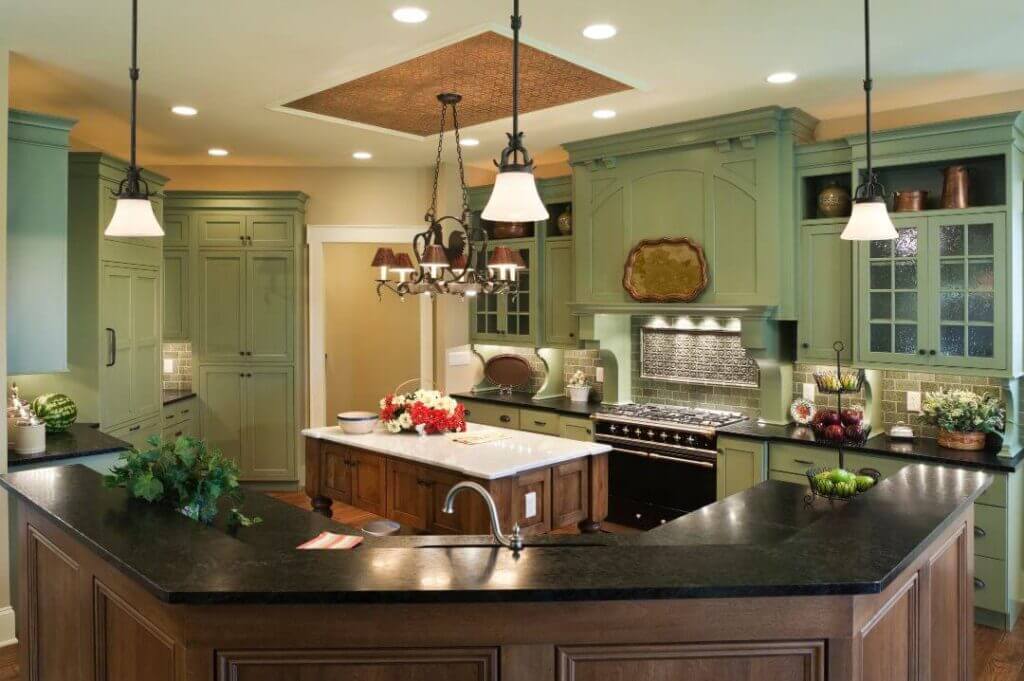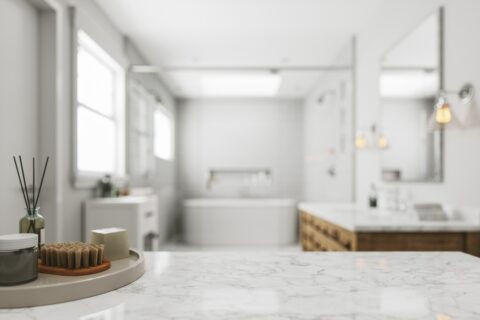Pros and Cons of Slate vs. Soapstone Countertops
In your quest to find the perfect countertop material, two impressive contenders come to mind: marble and soapstone. Either of these stunning natural stones, with their unique characteristics and visual appeal, could make suitable kitchen or bathroom countertops. Still, it’s vital to understand their specific strengths and weaknesses before deciding between them.
What are Marble Countertops?
The allure of marble countertops is unmistakable. The unique veining and wide range of colors, from pristine white to rich black, make every marble slab unique. However, like any other material, marble countertops have advantages and disadvantages.
Marble Countertop Pros and Cons
Marble countertops offer a host of benefits, including:
- Timeless beauty: Whether you’re aiming for a contemporary, traditional, or transitional look, marble can seamlessly fit into your design scheme.
- Heat resistance: Marble is unlikely to scorch or discolor when exposed to high heat. However, using a hot pad is always advisable to maintain your countertop’s longevity.
- Increased property value: Prospective buyers know that marble is a premium material, so its presence in your home can be a significant selling point.
Despite these benefits, marble has a few challenges:
- High maintenance: Marble is softer and more porous than soapstone, making it vulnerable to stains from dark or acidic substances. Regular sealing is necessary to maintain its pristine look.
- Susceptibility to scratches: Due to the soft nature of the stone, sharp objects can leave their mark on your marble countertops.
- Etching: Marble reacts with lemon juice, vinegar, and other acids, resulting in dull spots on the polished surface.
What are Soapstone Countertops?
Soapstone countertops are made from naturally occurring metamorphic rock, including talc, which gives it a silky, warm texture akin to a bar of soap. These counters are often recognized by their matte gray appearance, which gradually deepens into a dark, rich hue. Oiled soapstone has a slight sheen, but it’s not nearly as glossy as polished granite.
Soapstone Countertop Pros and Cons
Choose soapstone countertops to enjoy these benefits:
- Durability: Soapstone is an incredibly resilient material, able to withstand high heat and etching from acidic substances.
- Non-porous surface: Soapstone naturally resists bacteria and staining with no sealing required.
- Unique look: The aging process of soapstone adds a one-of-a-kind patina, making it particularly well-suited for rustic kitchens and bathrooms.
Also, consider the potential drawbacks of soapstone:
- Softness: Soapstone’s softness and matte finish make scratches and nicks more visible, requiring periodic sanding to retain its look.
- Limited color range: Like slate, soapstone typically comes in shades of dark gray and green.
- Maintenance: Regular oiling and buffing may be necessary to maintain soapstone’s darkened appearance.

The Bottom Line
Marble and soapstone offer unique advantages that cater to kitchens and bathrooms alike. For those seeking a stunning, luxurious countertop with a timeless aesthetic, marble is a fantastic choice. But if you prefer a soft surface that evolves over time, with excellent heat and stain resistance, soapstone may be the perfect fit.
At Rock Solid Custom Granite, we pride ourselves on guiding clients through these critical decisions, ensuring the best countertop choice for your needs. Call us today at (720) 344-7625 or contact us online for more information about your countertop options or to request an installation estimate.


